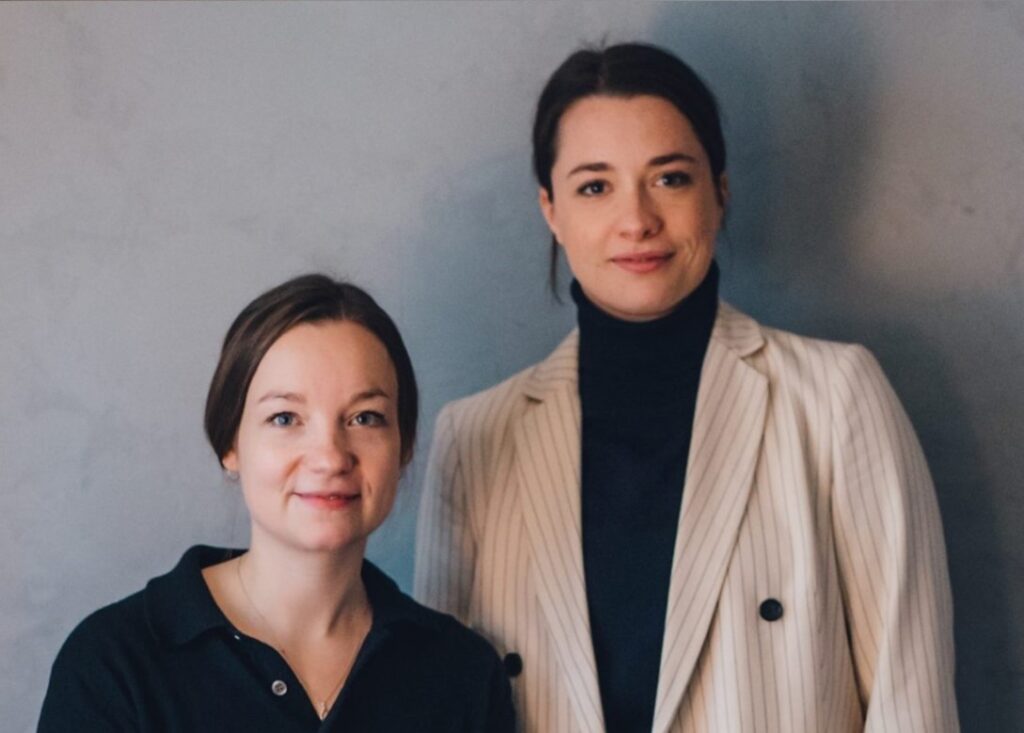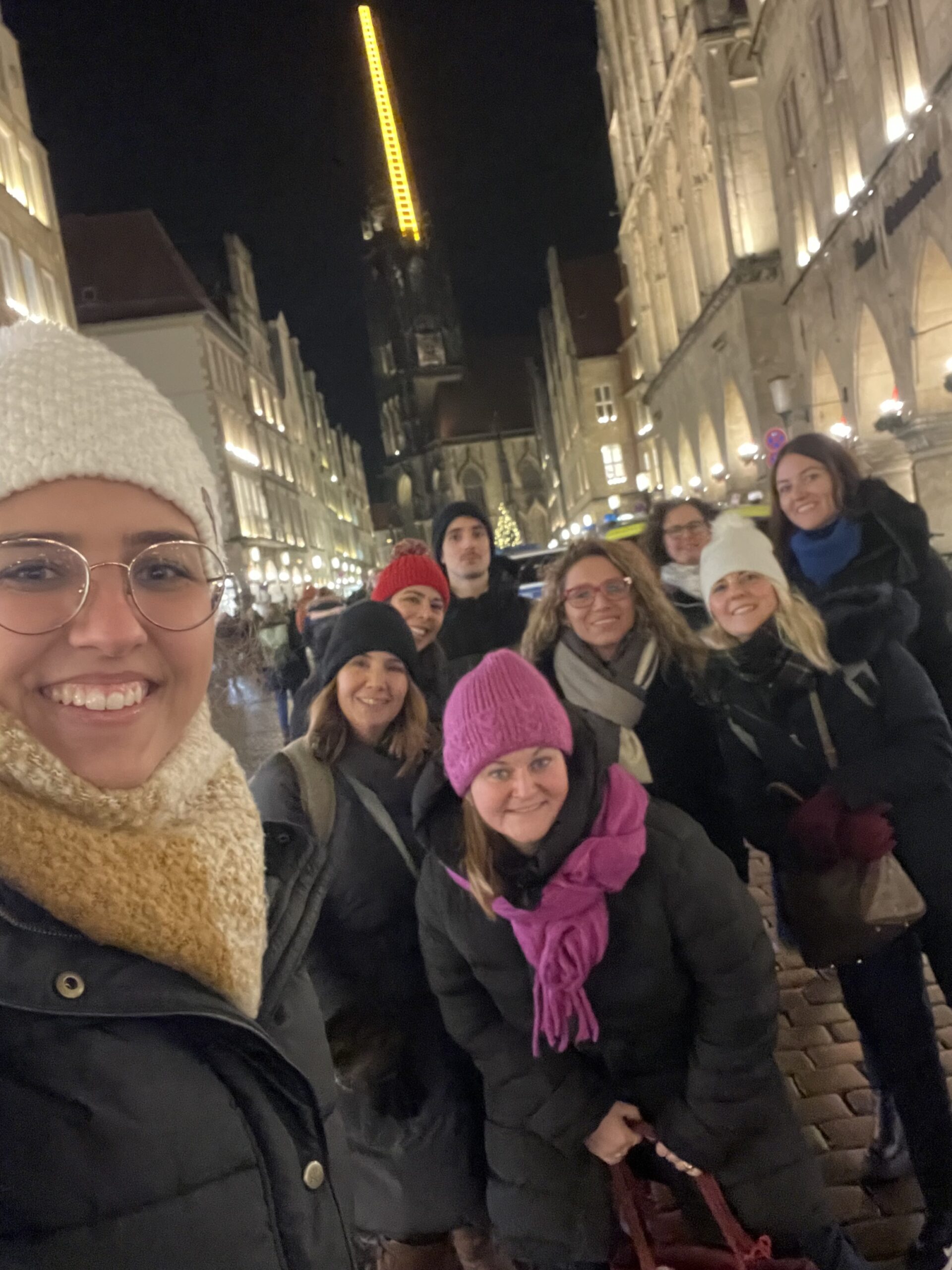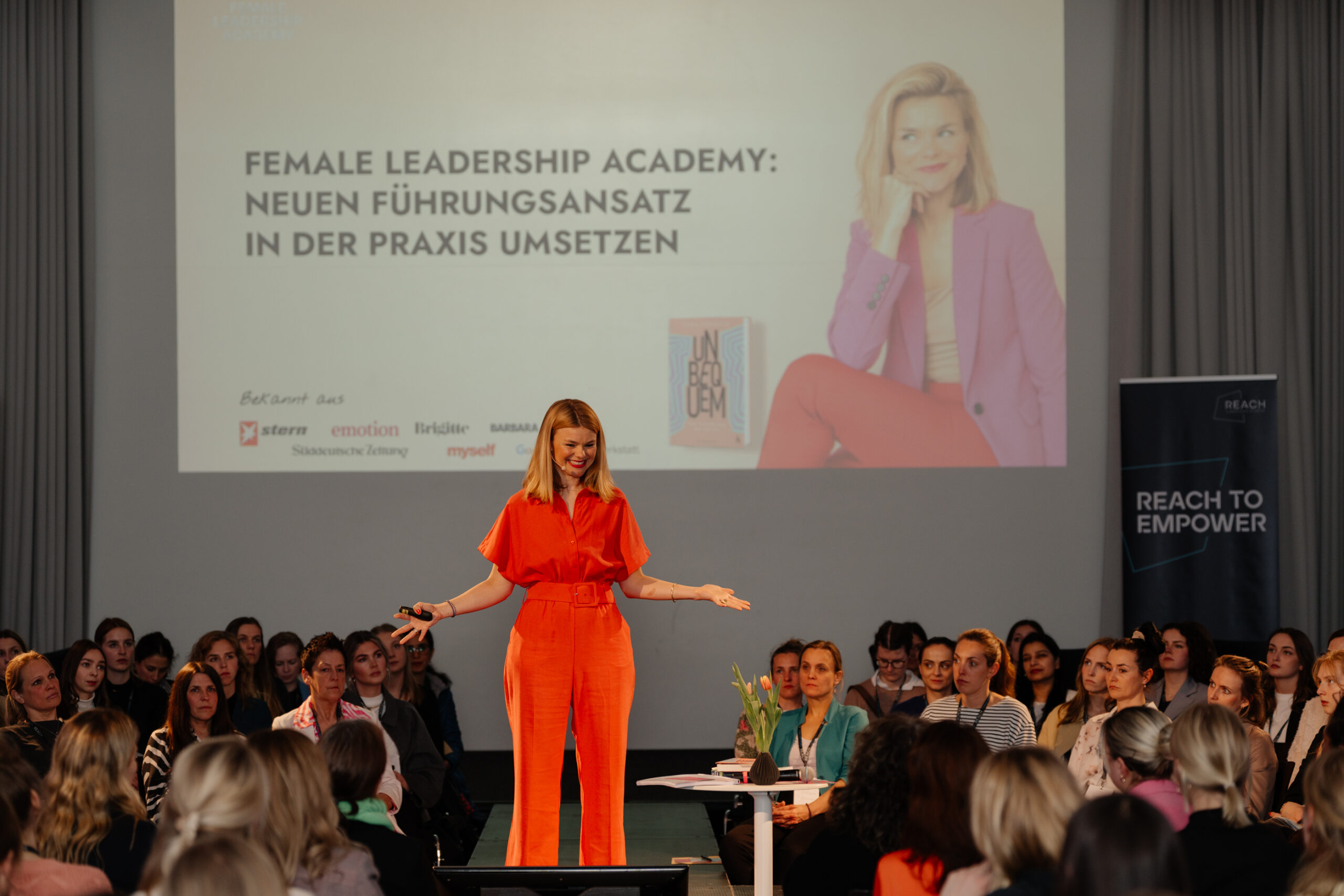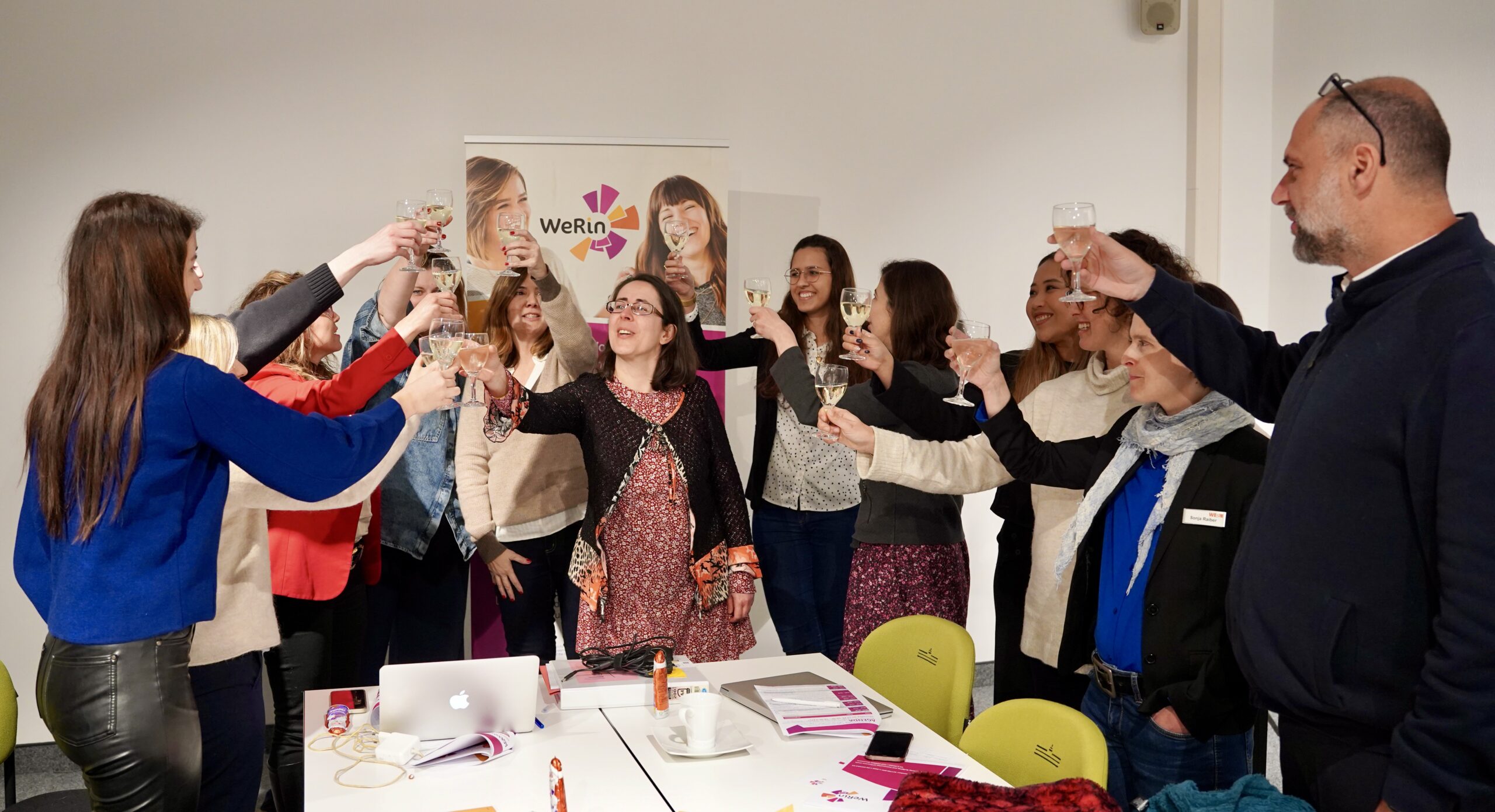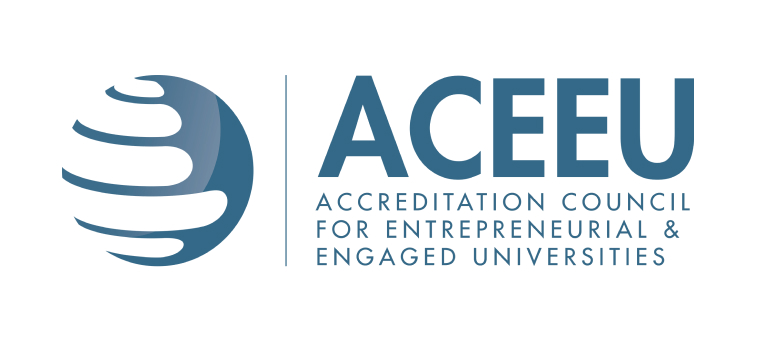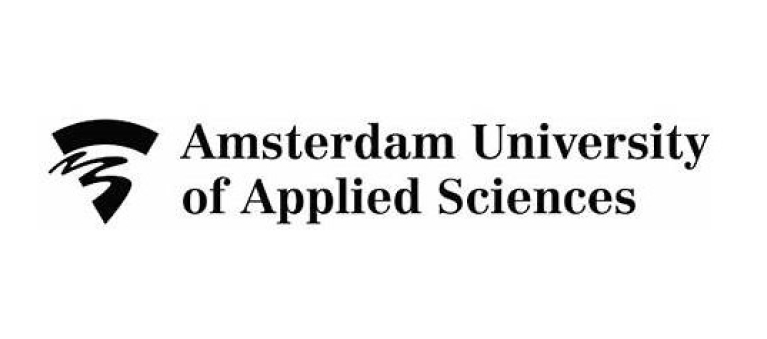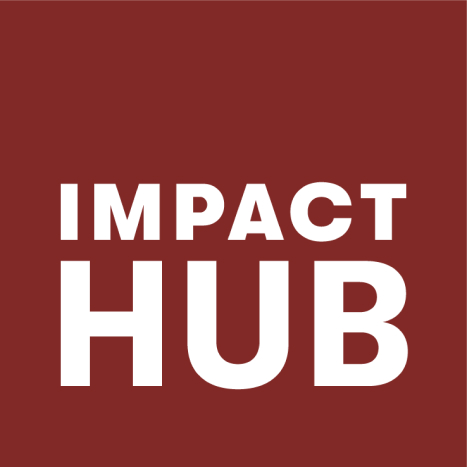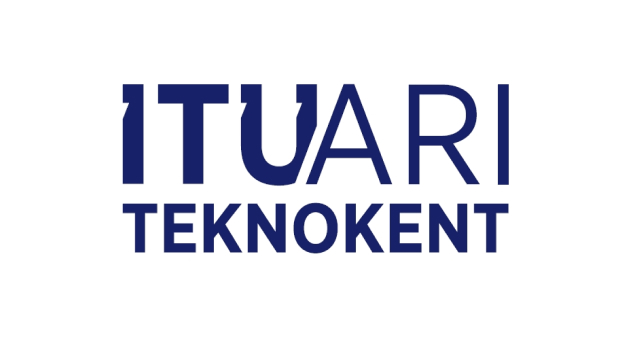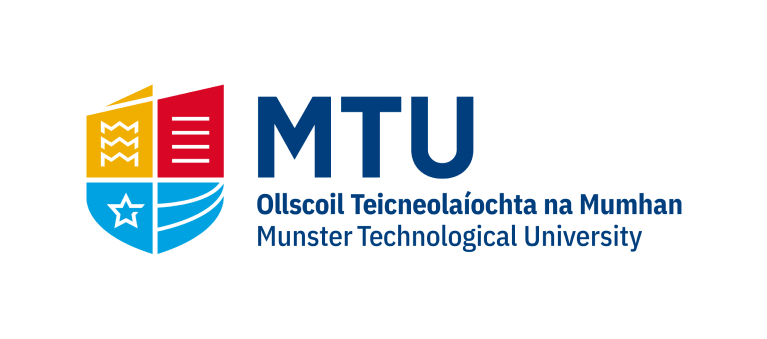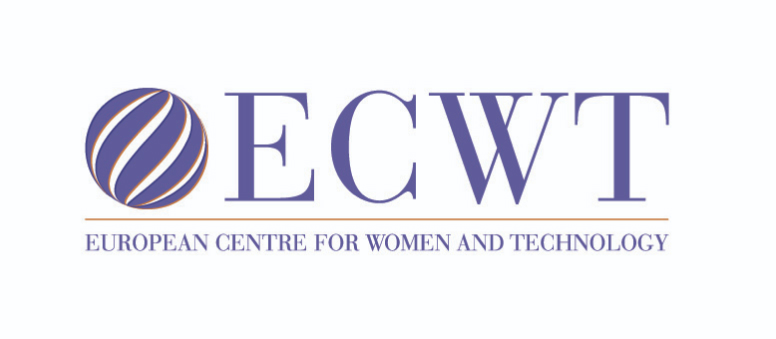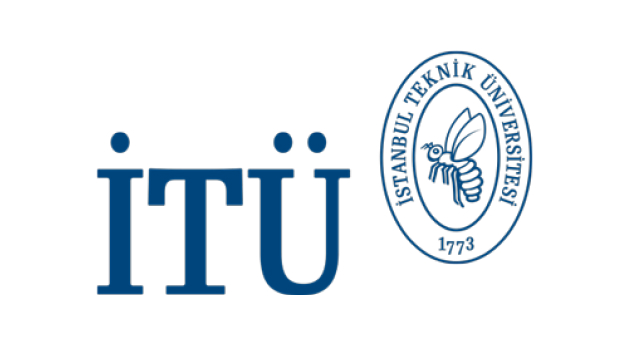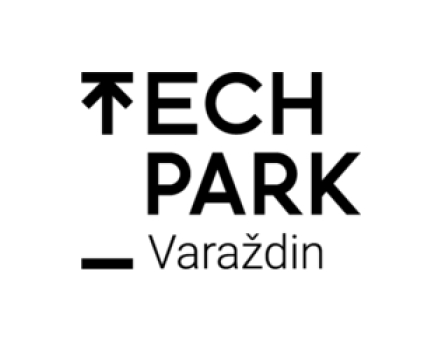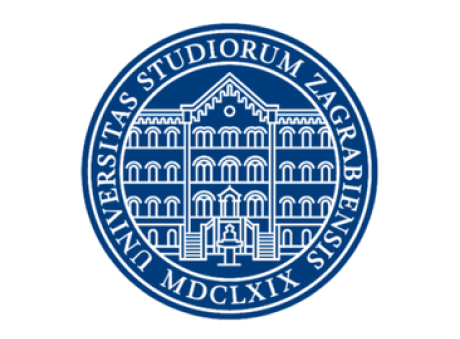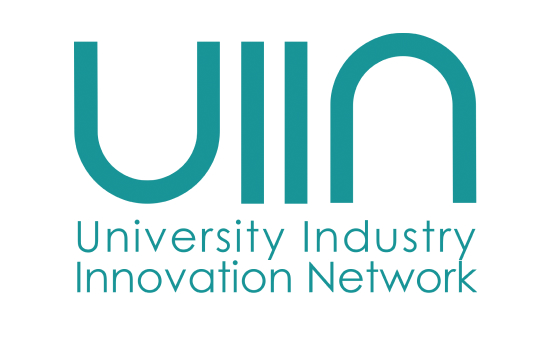FH Münster, a WeRin partner, interviewed one of the programme managers from a good practice that supports an inclusive entrepreneurial ecosystem in Münster, Germany. It was completed as part of the preparation for the Good Practice Report and the webinar series, which is currently being recorded.
The programme is called REACH to EMPOWER, and our project leader, Sue Rossano-Rivero, talked with Lea Kipper, scout and programme manager. It was founded in 2019, by Lea and Barbara von Groote-Gotzes (pictured above), another scout, and is growing stronger in the region.
Sue: Lea, can you tell us what REACH to EMPOWER is?
Lea: It’s a program for female founders especially, young women who are interested in founding. We have different types of offers like networking events, such as the Female Founders Breakfast, that happens every six to eight weeks; and Let’s Talk, in which we talk with female role models about varied topics to reach more women and show that women are everywhere and they do everything. People can either come to us to participate in the talk or join online in a stream on YouTube, and there’s a networking event after it. Also, there’s a seminar offered during the semesters to bachelor students to learn some basics about founding and about the right mindset that you need if you’d like to found something. But it’s especially for female students who are not in the business world already, or don’t study business.
Sue: Your target group, I understand it is female students in universities. Is it beyond the WWU* or FH Münster*? [*These are universities in Münster, where REACH to EMPOWER is located.]
Lea: Yes, it’s also FH Münster, but we’re not that strict. So, if there’s a founder or a female founder or a female founding team that is not at the WWU or FH yet, it’s also fine especially if she’s an alumna of FH or WWU, it would be no problem at all.
Sue: You have female students that are interested, but they’re not founding yet. But you also provide services for the founders, such as networking events. What was the motivation to start REACH to EMPOWER?
Lea: We thought that we needed to do something about this start-up ecosystem because there is only 17%, who are female founders in Germany, and there’s something wrong about it. We asked ourselves why and we just wanted to do something about it and start a program for females.
Sue: Could you elaborate on how you knew this was a great opportunity to start it? Well, you have told me already that there was a need, anything else?
Lea: Yes, we are both female founders and we experienced ourselves that it’s a very male ecosystem. We were at a lot of network events and it was all about hiring stronger, better but nothing about a culture of failure. So, you have to be perfect to start a start-up and we saw that it’s not enough. So, we try to create a safe space and this creates a culture and an atmosphere and the female founders network wins.
Sue: What are the benefits for your target group?
Lea: The main point is the network and that they have a safe space with the Female Founders Breakfast, that they can come and tell the others about their idea. But it’s also about if they failed at something like that and I know that a lot of the female founders have made new connections, and I think that’s the best.
Sue: What are you most proud of?
Lea: I think it is these connections they make and that they learn from each other. It’s nice to see and I’m also proud of the importance of the topic that it now has REACH, but also in the start-up ecosystem; that people know about it and talk about it and come to us because they heard from someone.
Sue: Why do you think REACH to EMPOWER works well? Why do you think it has gained a lot of legitimacy, importance? What would you say has been the success factor?
Lea: Sometimes I also ask myself this question and I really don’t know, because we just started.
Sue: Can I say what I think and you can tell me? One of the things I see in REACH to EMPOWER that is different to other initiatives is that you and Barbara started it. You put the importance on the network, on the people, and you are not “it’s about us”, “we are the ones”, because I see that a lot. I see that it’s very important for somebody that starts something to brand themselves and make it “about me”. You really put care in there, you interact, you do it. You’re taking care of the network and I think this is something that everybody values, because it’s not that you want to control it.
Lea: Yes, it’s nice to see it all happening and the fact that we are entrepreneurs ourselves, is also a great success factor. It’s good for motivation, because we know why we are doing this, because we made these experiences ourselves to start this.
Sue: What do you think you have to keep doing in order to keep it working?
Lea: To see that the topic gains more importance everywhere. I think it’s a trendy topic, but I hope that it will be taken serious by everyone and that we have more possibilities to be visible in this way. Our motivation is very intrinsic.
Sue: You keep listening to the needs from them, because it’s about them. You mentioned things like “we asked them and they said no”. I think these stories are success factors, that you keep talking to them and thinking “what can we do?”.
Lea: Yes. For example, last week, for the first time, we had a workshop pitch and presentation training just for female founders. This was a great thing and we saw that there’s a need because ten female founders came and we only mentioned it two weeks ago. We learned that there is a need, to have these workshops just for female founders.
Sue: You do a lot of effectuations, you are listening, and then you go where you are needed. Not really, ‘this is the program, this is the structure, this is the schedule’. You do a little bit of both.
Lea: Yes, we are open to developing new formats. For example, the seminar is not a strict seminar. It’s a workshop format and we want to create an atmosphere that makes people feel welcome.
Sue: How do you create that atmosphere?
Lea: I don’t know. I think they feel like they can say anything. We are not standing in front of them. We are just sitting like we are sitting here now and we tell them that they can interrupt us any time and ask questions, and there’s no dumb questions and that they don’t have to feel like they have to know anything. They are here to learn something. But we also say from the beginning that, especially the seminar, is a lot about mindset and values and leadership and ways of work and that they have to be very open because it’s very personal. I think we create this atmosphere because we are also very personal and tell them about our experiences. So, it’s not like you are there and I am here. It’s like we are here together and we are working on it and to give them a feeling that they don’t have to share anything they don’t want to share.
Sue: I think you both are very authentic.
Lea: Yes, I think that’s a good thing.
Find out more about our Good Practices here: Resources – We R In (werinproject.eu)

